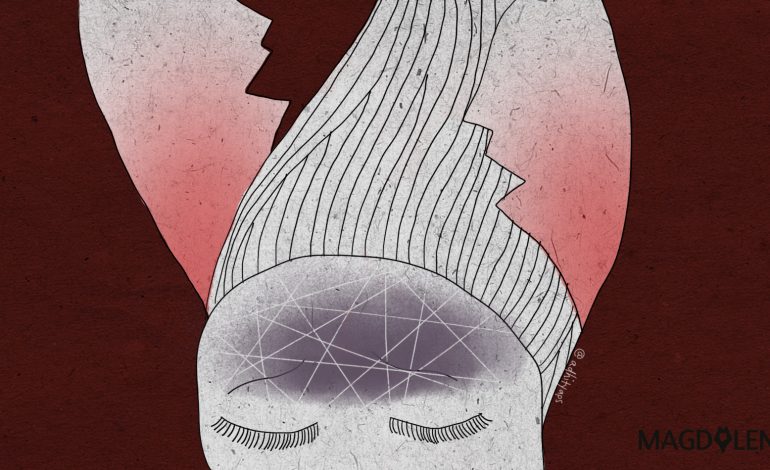Depression in Academia

Last month was the Mental Health Month and in that spirit, I would shed some light on depression in academia. While this is not exclusive to graduate school, the experience that I am facing during graduate school might be applicable to whatever part of the journey some people might be going through.
Academia or the academic path has always been a career option for me since I was younger. I had dozed off at university libraries way before I became a proper student, as this was the path my mother showed me my whole life. I found comfort in campus cafeterias and sitting among lecturers and students – all leading me to believe that this would be my working ground in the future. The idea of getting paid to study sounded too good to be true, fueling my curious childlike mind and motivating me to achieve the dream job.
However, as I grew up, this dream and magical land of campus cafeteria and mingling students started to show its true color: academic bureaucracy, office politics, and the ivory tower of science meant for academic elites and filled with conferences, high-end journals, and publications. In addition, in Indonesia, there is the assumption of academics being underpaid and underappreciated in an overlooked career path less prestigious than many others.
During graduate school, I became more deeply enmeshed in the environment of academia. Sadly this came with my deteriorating mental health. The story of “snapping” scholars is a tale as old as time. If we become too consumed with our craft (either research, thesis, or dissertation), we can lose ourselves in the perpetual feeling of ineptness and mediocrity, while looking up to some shining professors hopping on and off this fellowship, that conference, and embarked in sophisticated post-doc.
Also read: How Depression and Anxiety Messed Up My Academic Life
While I tried to surround myself with fellow academics to keep up with their research, maintain networks, and involved in discussions, it was too easy to see who has published what, who went where, and who got tenured. The productivity trap would haunt me, making me question my own intellectual capacity and wonder whether I would be able to catch up with them in any way.
In the last couple of years, instead of becoming a high-functioning depressed grad student like I always had, I have had a different experience that paralyzes my senses. I have been having a hard time reading a single paragraph, let alone writing a coherent sentence. I have tried to wait it out, giving myself some time to regain the capability to be back on track, but every day feels like I am constantly paddling to keep my head afloat to keep me from drowning.
Papers are neglected, classes are skipped, and research feels like a string of meaningless words that remind me how far I am left behind. The safe space of academia that was once my best friend has turned into a dark ocean with no land in sight and I am left gasping for water.
Also read: Women Aren’t Failing at Science – Science is Failing Women
I’m not even sure whether I would even finish graduate school at this point. Perhaps I will forfeit, or I will muster the last remaining strength to barely pass the course. During this time, the mental toll it takes to finish one simple essay can lead me to an episode of denial alongside excessive sleeping for days.
Regardless, I am trying to come to my senses to understand that academia is not this fantasy land of curiosity and knowledge. It has its own power structure left by the colonial powers, patriarchal tradition, and the predominant North institution standards that has undermined scholarship from the South. I understand this mechanism dearly, yet it does little to get me out of the rut.
In the future, I wish academia would grow its sensibility and empathetic side, and become a place where one will not simply be praised for her intellectual accomplishment through productivity in research, administrative works, and soul draining institutionalized arbitrary grades or global ranks.
The academics – whom I call the “oompa-loompa” of science – need better job security and a space to maintain their mental health, instead of the usual institutional lip service of a caring community – but one which would banish their underperforming struggling peers. I still believe in the importance of this institution to keep the government in check in a working democracy. But if that is the weight of responsibility the academia bears, then they should have the proper mental support to do so.






















